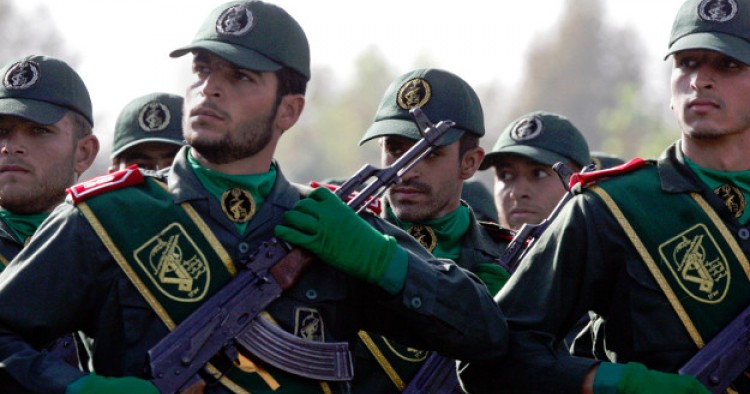The deputy head of the Islamic Revolution Guards Corps (I.R.G.C.) Intelligence Organization has said that Iran’s nuclear activity and deterrence power in the region have changed the calculations of the United States and its allies to launch a military attack against the Islamic Republic. “If the Israelis and Americans have today stopped thinking about war against Iran, it is because of Iran’s dominance in the region and its deterrence power on the ground, air and sea,” Brigadier General Hossein-Nejat said today. “They have also seen the revolutionary and passionate presence of the Iranian people in all fields. It is not diplomacy but this authority and deterrence power and the people’s participation that has removed the shadow of war over the country,” he added. The I.R.G.C. general further claimed that Iran’s “nuclear technology and enrichment” and “resistance” to “bullying powers” in the past decade forced Washington and other world powers to come to the negotiating table and agree to the 2015 nuclear accord.
In a tacit criticism of the Rouhani government, Hossein-Nejat cautioned that Tehran must neither project weakness to the enemy nor try to engage with the West to resolve Iran’s economic problems and diplomatic isolation. “The opinion of looking to the West to resolve problems is doomed to failure,” he stressed, adding that “the way to solve difficulties is to trust our revolutionary youth.” The I.R.G.C. intelligence official also issued a warning to the U.S. Navy stationed in the Persian Gulf. “If the U.S. aircraft carriers launch a single bullet at the direction of our borders, they will encounter a decisive response.”
Comment: On the campaign trail earlier this month, President Hassan Rouhani repeatedly told the voters that his signature nuclear agreement with world powers eased international economic and financial pressure on the country and removed the “shadow of war” which was looming over the country under the Ahmadinejad government. In the final televised presidential debate, the Iranian president went a step further and vowed to remove the remaining U.S. and European sanctions on Iran if the voters gave him another chance. “I will engage myself in lifting all the non-nuclear sanctions during the coming four years and bring back the grandeur of Iran and the Iranian people,” he said.
But as Hossein-Nejat’s remarks indicate, any efforts by the Rouhani administration to engage with the West on non-nuclear issues will most likely be torpedoed by the I.R.G.C. Iran’s Supreme Leader Ali Khamenei is also opposed to normalization of relations with the West, particularly with the United States. Khamenei made similar remarks in reaction to Rouhani’s campaign pledges about engagement with the West a month ago. “Sometimes we hear and have heard in the past that certain individuals say, ‘when we came along and assumed responsibility, we managed to take away the shadow of war over the country,’” he said at an event marking the International Workers’ Day.
Moreover, the remaining U.S. sanctions that deter foreign banks and companies to do business with Iran are mostly related to Iran’s controversial ballistic missile program, support for terrorism and human rights abuses. In the past four years, Rouhani has been unwilling or unable to bring about positive change in the three key areas of concern. And the Trump administration has also made it clear that, even if it keeps the nuclear deal, it will ratchet up pressure on Iran to contain its regional and military ambitions.
The Middle East Institute (MEI) is an independent, non-partisan, non-for-profit, educational organization. It does not engage in advocacy and its scholars’ opinions are their own. MEI welcomes financial donations, but retains sole editorial control over its work and its publications reflect only the authors’ views. For a listing of MEI donors, please click here.












